If your cat sleeps with its mouth open, it may indicate relaxation or potentially serious health issues like feline asthma or respiratory problems. Open-mouth sleeping can also be affected by environmental factors such as pollen. Monitoring for additional symptoms like coughing, drooling, or pawing at the mouth is crucial. If you are concerned, consult a veterinarian for a proper diagnosis and treatment plan.
Hey there, fellow cat guardians! You ever look at your cat and think, “What in the world are you doing?” Well, if you’ve seen your cat sleep with its mouth open, you’re not alone. Now, before we jump to conclusions, let’s dive into this mystery.
Is it normal for your cat to sleep this way, or is it a sign that a vet visit is on the horizon? This article will unravel the reasons why a cat may sleep with its mouth open and when it might be cause for concern.
Normal Cat Sleep Habits
What to Expect in Regular Feline Sleep
So you’ve brought a new feline buddy into your life, and you’re curious about their sleep cycle, right? Usually, cats have a pretty standard way of catching their Z’s.
In a normal sleep position, you’ll often see the cat curled up in a ball, paws tucked under, and eyes shut tight. They’ll breathe through their nose and keep their mouths closed.
Why? Well, cats, like humans, find this position comfortable and it helps keep them warm. Plus, breathing through the nose filters out dust and other particles, so it’s the body’s built-in air purifier!
Why Cats Sleep So Much
You might have also noticed that cats spend a lot of time sleeping. On average, your typical house cat will clock in around 12 to 16 hours of sleep per day. That’s half the day! Young kittens and older cats may even sleep up to 20 hours. But why so much sleep?
Cats are instinctual predators, which means they’re hardwired to hunt. Even if the only thing your indoor cat hunts are toys, hunting is exhausting work. When they’re not pouncing on a stuffed mouse or darting after a laser point, they’re recharging their batteries for the next big chase.
Cats and Dreaming
Believe it or not, cats can also dream. Just like humans, they go through different phases of sleep, including the REM (Rapid Eye Movement) phase where dreaming occurs.
So if you see your cat’s paws twitch or hear a soft meow during their sleep, don’t be alarmed. They’re probably just dreaming about catching that elusive red dot.
Observing Your Cat’s Sleeping Behavior
What to Watch For When Your Cat is Sleeping
Alright, team, we’re switching gears a little. You’ve figured out what a regular catnap looks like, but maybe you’ve seen your cat doing something a bit, well, irregular. You’ve noticed your cat sleeping with its mouth open, and it’s got you scratching your head. Now what?
Take note of any sounds your cat might make. Snoring or wheezing can be warning signs. Keep an eye out for rapid breathing, coughing, or any unusual vocalization. These could be subtle signs that it’s time for a trip to the vet.
Monitoring Sleep with its Mouth Open
Let’s be honest, if your cat is sleeping with their mouth open, you’ve gotta be a bit of a Sherlock Holmes here. Look for other clues. Is your cat pawing at its mouth, maybe trying to dislodge something? Does it stick out its tongue as if it’s had a lemon?
What about drooling? If it’s drooling like a faucet with a broken handle, you’ll want to dig deeper. Your cat might be telling you something without using its usual meow.
Keep a Sleep Journal
You love your cat and want the best for it, so why not keep a sleep journal? Jot down any irregularities you see in your cat’s sleeping habits. It can be invaluable data when you take your cat to the vet. Dates, times, and symptoms can help your vet get to the bottom of things faster.
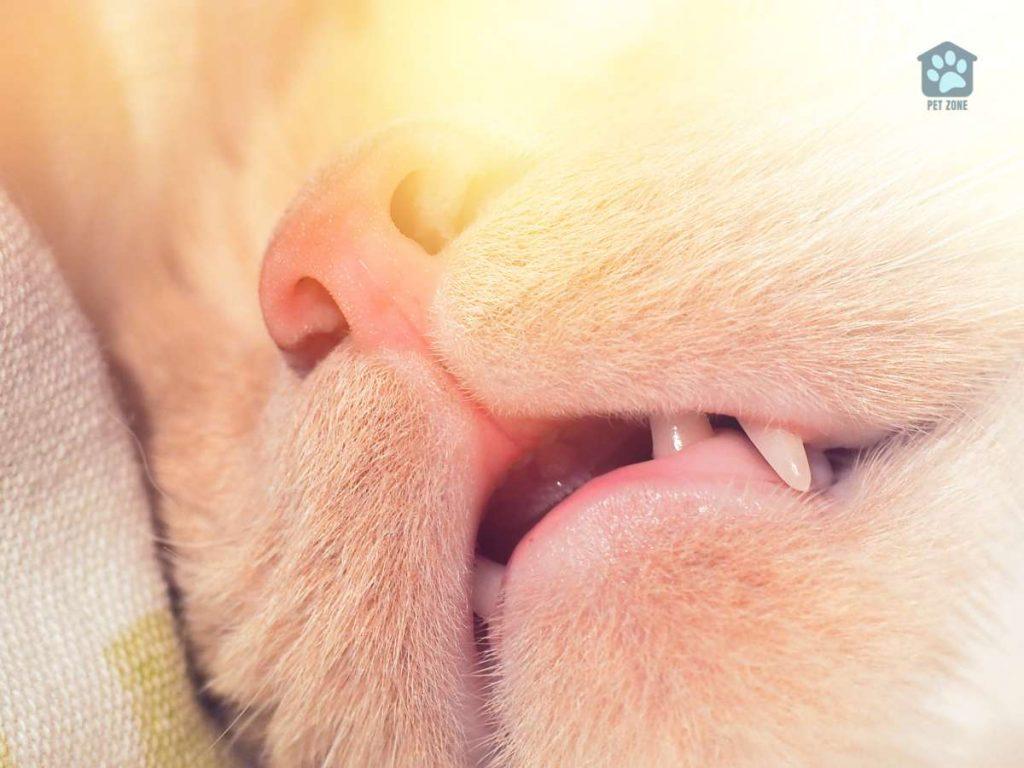
Why Cats Sleep with Their Mouth Open
Relaxed or Not: The Open Mouth Quirk
Alright, now that we’ve covered the basics of what a normal cat sleep should look like and what you should be monitoring, let’s dig into why a cat may sleep with its mouth open. Sometimes, it’s a sign of pure relaxation.
Just like humans reclining on a cozy couch might let their jaw drop a bit, cats can also experience a state of relaxation so deep that their mouth falls open. It’s quirky but often harmless.
Mouth Open Might Mean Health Issues
On the flip side, we’ve got to talk about the health issues that can cause a cat to sleep with its mouth open. The big ones here are feline asthma and respiratory issues. But let’s not forget about other serious problems like pulmonary or cardiac disease and even heat exhaustion.
It’s crucial to keep a lookout for additional symptoms. You’ll want to check for any sign of rapid breathing, panting, or difficulty breathing. The moment you see these, book a vet appointment pronto.
Environmental Factors and Allergens
We’ve got to consider the role of the environment here, folks. Pollen, smoke, and even certain cat food can act as allergens.
Allergic reactions can mess with your cat’s respiratory system and might lead to symptoms like coughing, sneezing, and yes—sleeping with their mouth open. Always be aware of what’s in your house and what your cat may be exposed to.
How to Monitor and What to Do
Keep an Eye for Additional Symptoms: More Clues
You’ve got your detective hat on and you’re watching your cat closely. Look out for additional symptoms, like a cough, drool that’s more like a river than a stream, or a constant paw at the mouth. If your cat shows more than one of these signs, something’s up.
When to Consult a Veterinarian: No Time to Waste
No ifs, ands, or buts about it—if you notice any combination of these symptoms, especially if they’re linked to breathing issues or what seems like stress, don’t waste time. Take your cat to a veterinarian immediately. It could be an underlying health issue that needs prompt attention.
What the Veterinarian Might Do
Once you’re at the vet, they might look at various aspects like dental problems that might be causing your cat to sleep with its mouth open. Tests might include X-rays to check for issues in the airway or lungs.
In some cases, your vet will prescribe medications or recommend changes to your cat’s environment such as avoiding pollen or smoke.
Keep an Eye on Their Diet
Yeah, diet plays a role too! Some foods can cause allergic reactions, which can lead to symptoms like open mouth breathing. Make sure to talk to your vet about the best cat food options for your furry friend.
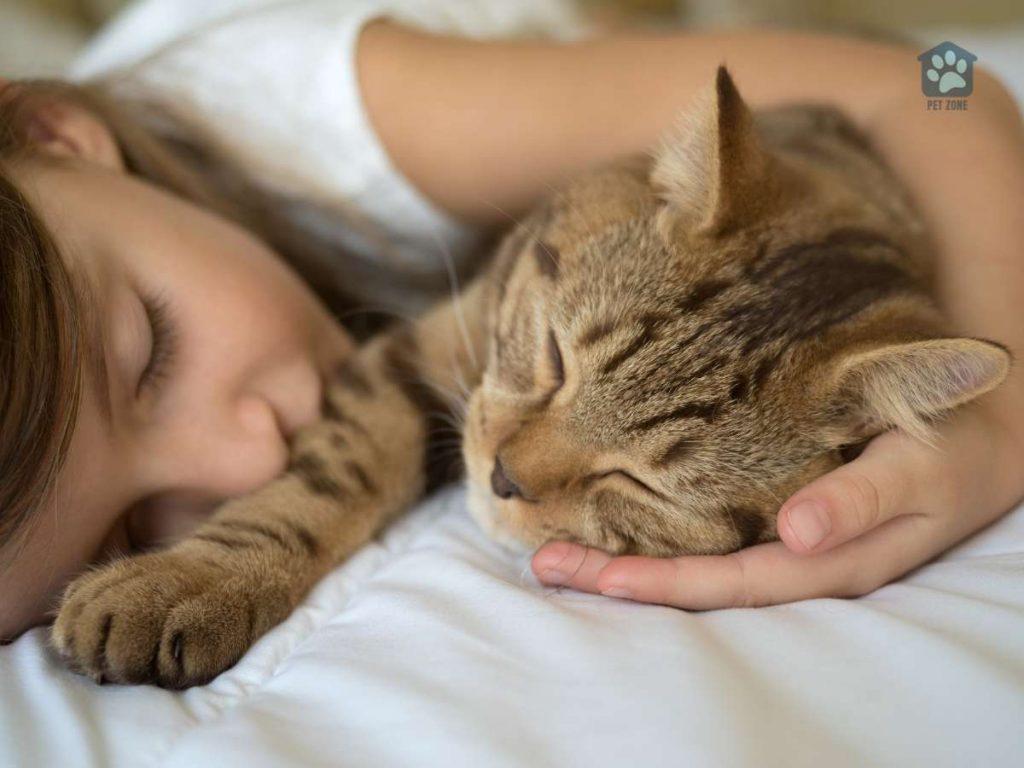
Final Thoughts on Cat Sleeping With Mouth Open: Trust Your Instincts
You know your cat better than anyone else. If something doesn’t seem right, trust your instincts. Whether it’s a change in sleeping habits or difficulty breathing, when in doubt, consult your veterinarian.
It’s possible that what you think is just a quirky sleeping habit could be due to an underlying health problem. Don’t take risks with your furry friend’s health.
Feel free to leave your comments below to share your own experiences, and don’t forget to share this article on social media to help other cat owners!
As an Amazon Associate I earn from qualifying purchases.
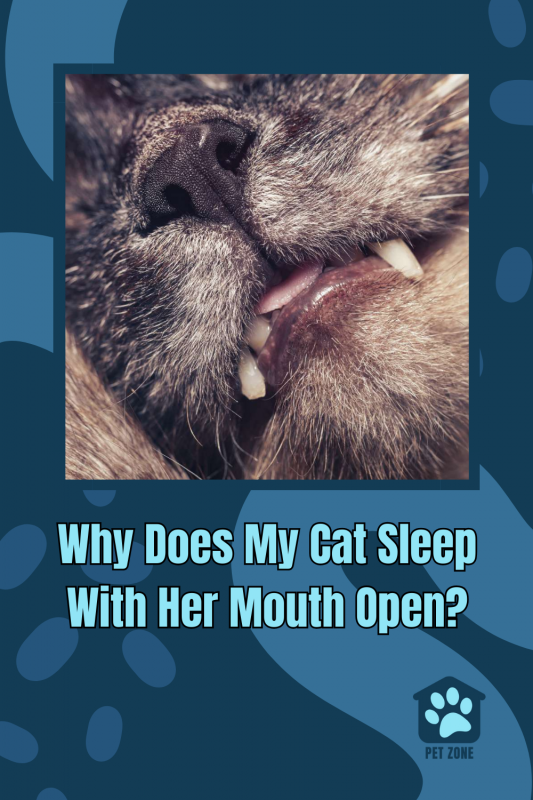


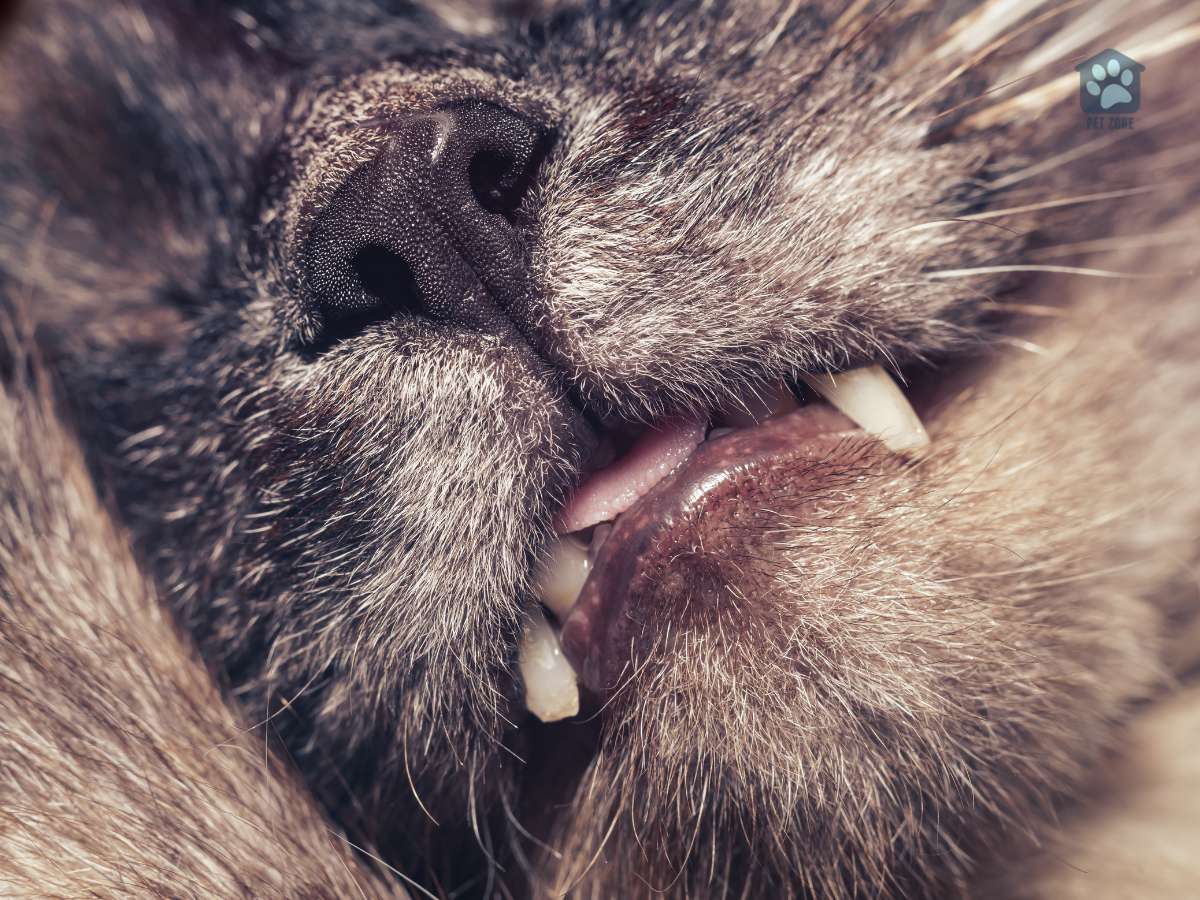
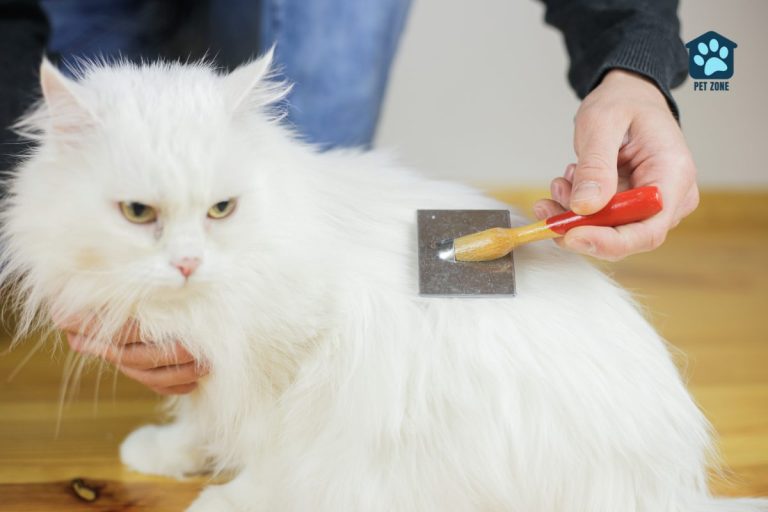
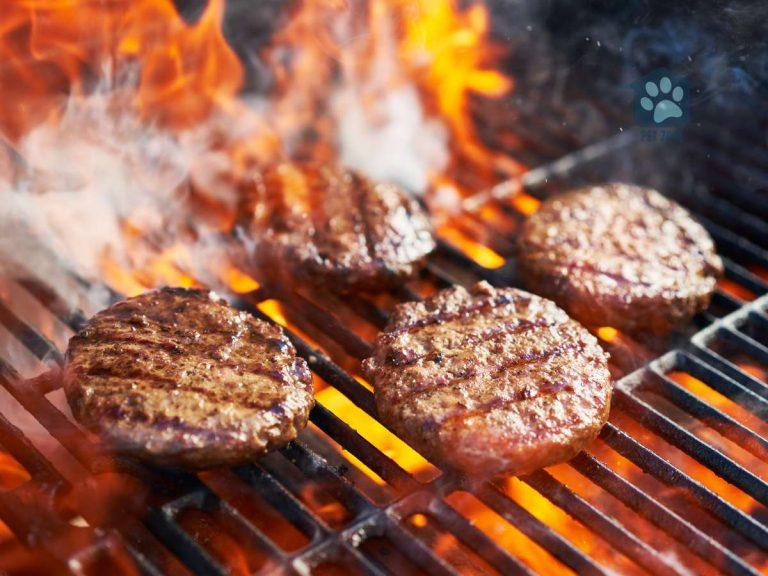
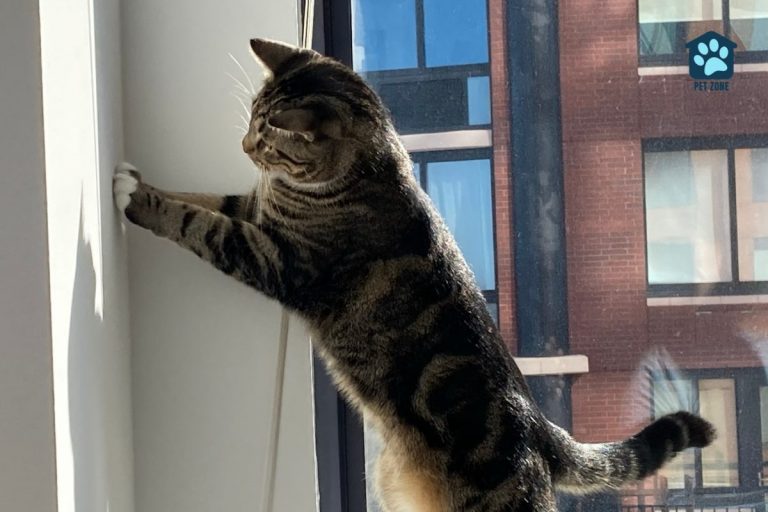
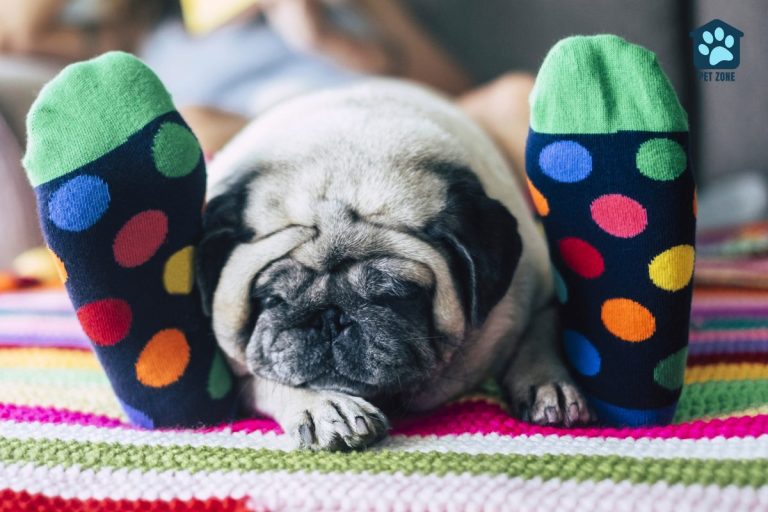
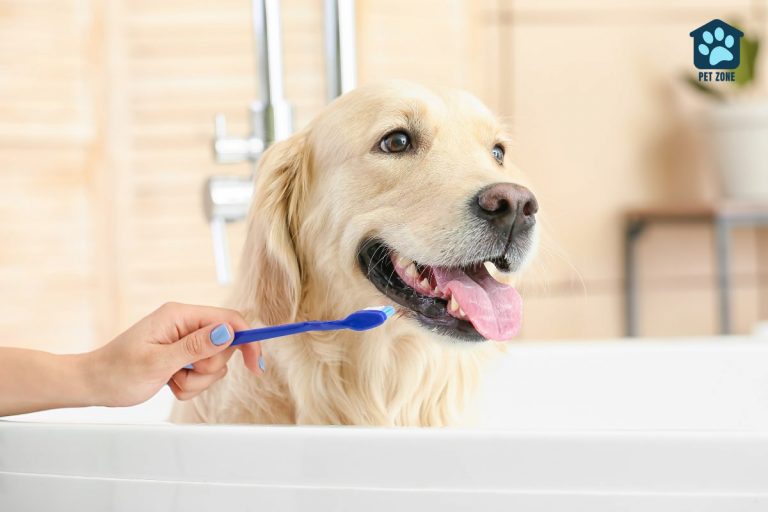

Aren’t they just gorgeous. I think it is quite normal in my cat when she sleeps with her mouth open. She also makes funny noises while she is dreaming 🙂 Thanks for sharing!
Thank you for this article about cats sleeping with their mouths open. I have two 16-year-old senior cats and it is so helpful to read articles about this to monitor potential health issues.